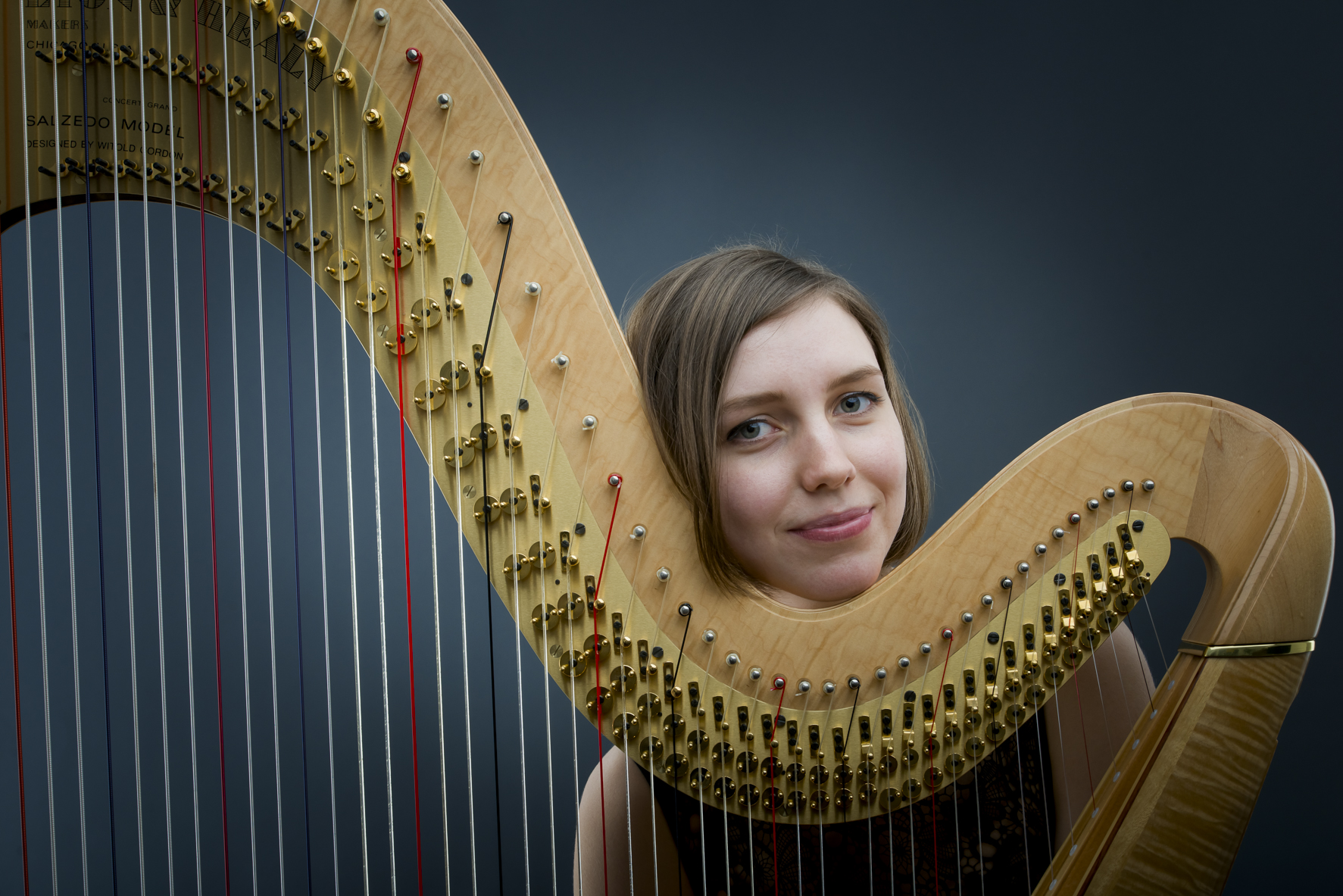Harpist Melina van Leeuwen performs Ravel’s Introduction and Allegro and Debussy’s Danses sacrée et profane with Melbourne Chamber Orchestra in Classical Visions on Sunday 6 March and Friday 11 March 2016.
The two works for harp and orchestra on this program were written at a time when the harp was rapidly evolving. Can you tell us some more about how these works came into creation?
Both of these works were commissioned by Parisian harp makers. Pleyel, Wolff & Company commissioned Debussy to write the Danses in 1904, and Ravel was in turn commissioned by Erard to write the Introduction and Allegro in 1906. The Pleyel harp Debussy was instructed to showcase was the so-called ‘chromatic’ or ‘cross-strung’ harp, a harp with two sets of strings and no pedals. Meanwhile, the Erard harp company was promoting the double action pedal harp. The double action patent was a nineteenth century development, and allowed harpists to play difficult chromatic passages with an ease not previously known. Instead of having to pick out chromatic intervals within the intricate cross-strung harp system, the seven pedals of the double action harp enabled players to apply pressure to each string, flattening or sharpening the string itself, with a movement of their feet. This technology proved superior to the technical demands of nineteenth and twentieth century orchestral harp writing, and in turn the double action pedal harp has survived its chromatic rival to become the modern ‘Concert Grand’ pedal harp used today.
What’s it like to play a cross-strung harp? Are they made at all any more?
Cross-strung harps continue to be made. Some of those harps will be reproductions of Baroque instruments by specialists, some of them will be modern but inspired by or borrowing from old techniques. The only time I have ever had access to such instruments was at a masterclass with Andrew Lawrence-King, the well-known early harp virtuoso and specialist in Baroque gesture and action. It was something of a shock to discover what an appalling noise I made on them. The tension of these old instruments is drastically less than on a modern concert grand, and my terribly hardened and callused fingers could elicit nothing of the beautiful subtleties of sound I knew the instrument was capable of. The best I could do was not to break any strings.
What makes good harp playing? What do you strive to achieve, and what do you listen for in the performances of others?
For me, good music making on any instrument comes down to the fundamental desire to communicate- with the audience, with the ensemble, with oneself, with the music, with the space. Although I have firm beliefs about the technique which I practice that best helps me achieve this, I do not feel there is a single style of ‘good’ harp playing. Some of the most moving harp performances I have witnessed have been by players whose personal style or technique is vastly different to my own, and indeed would be inauthentic for me to attempt to emulate. The thing which I listen for in others, and strive for myself, is to establish a bond of trust within a performance. When we trust one another, we can be together, for a time, mutually exchanging our thoughts and energy, and be a part of something fleeting.
Tell us about your journey to becoming a harpist.
I am a harpist because of Xanya Mamunya, my first harp teacher. The inspiration she gave me will last my lifetime. I first met Xanya at a chamber music concert where, at the age of five, I rushed over to her at the conclusion of the concert and began arranging my first lesson. My parents gently attempted to delay my study, but I would not be dissuaded. I knew what I wanted, and that was to spend time each week with this fascinating woman and her strange instrument. In those lessons I learnt more about life than I ever have in any other form of education. In my final year of high school, I was very fortunate to study with harpist Jacinta Dennett, whose incredible support of my playing continues to this day. The other main inspiration for my playing has been Alice Giles, my teacher since 2010. It is an enormous privilege to have been able to shape my playing through her guidance.
Classical Visions
Sunday 6 March 2:30pm Melbourne Recital Centre
Friday 11 March 7:30pm Federation Square
Tickets Standard $59–$119 Concessions available
Under 40s $40

